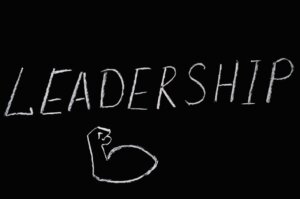
One thing that I’ve noticed is, that no matter how hard we try as trainers, the results are limited to the character of our trainers, trainees and managers. What if we could depend on character to make our training a success. The only character we can depend on is our own, and if we are truly honest with ourselves, maybe it too is suspect. I suppose I awoke a bit negative in my thinking as I searched for a topic to talk about in training. I just started thinking that no matter how hard we try in some instances people will not change. We attempt to change attitudes of people toward certain ideas, but even those attitudes change given time as newer experiences and other people weigh in with their influence and opinion. Right or wrong. It doesn’t matter.
What does this mean for the training and development arena? Not much unless you are focused on the whole as I am. I’m not sure I’ve built a box to put myself in. On the other hand, if I am totally honest, maybe I have, with my ideas of what is right and what is wrong, with what I think effective training is, with what I think is its value to society.
Take a minute to reflect on those same points and how you reflect them in your business. With talented and bright people, there is always the possibility that their enthusiasm can be taken for arrogance. The word itself is telling: an arrogant person is sometimes as bright or talented as they think they are. If they aren’t–if they can’t deliver what they promise, we disregard them. They are their worst enemies.
Our character, and I’m talking about moral character, very obviously influences our business client’s perception of who we are regardless of their character. Wikipedia in all its brief wisdom tells us a lot of what we need to know in this rush to judgment world:
Moral character or character is an evaluation of a particular individual’s durable moral qualities. The concept of character can imply a variety of attributes including the existence or lack of virtues such as integrity, courage, fortitude, honesty, and loyalty, or of good behaviors or habits. Moral character primarily refers to the assemblage of qualities that distinguish one individual from another — although on a cultural level, the set of moral behaviors to which a social group adheres can be said to unite and define it culturally as distinct from others. Psychologist Lawrence Pervin defines moral character as “a disposition to express behavior in consistent patterns of functions across a range of situations.”
As trainers we are concerned about getting the right information, generally to aid in performance, which in turn aids in company productivity or in some way covers a government mandate, i.e., safety issues. In Leadership training, we want to identify positive character traits and promote behaviors in others that will enable them to lead the company. Is it possible to change who people have become after years of those characteristics being ingrained by experience? People do change, according to the optimists. People do not, if you’re a pessimist.
I’m leaning toward the dark side. I think we have limits. We need to accept them. Understand our change to others behavior is limited. We can hand out knowledge and hope that is put to the use intended. That is our plan, and we stick with it.
Does there ever come a time when we come back to reinforce character development? Perhaps with young leaders-to-be. Now, that’s a thought. Start them young and see where they go, and come back and see what they’ve done with that training. You could call it a simple follow-up because I don’t think many in this business would do it unless it had some measure of profit. Now I’m not saying we are not altruistic, but we have to live, too. It is a reality I accept. As I said earlier, I’m kicking around ideas. I’ll come back probably later today or early tomorrow with something more substantive than an idea, but if we could prove such a concept has some value to the company, who knows where it will lead.
—
For more resources about training, see the Training library.
My disclaimer is always that these are my opinions and thoughts alone. I hope in many ways we agree. If we don’t, let’s learn from each other. Please comment here or on my website, “Have Yourself An Affair to Remember.” If you have a training related topic and want to be a guest blogger, click on the link above and fill out the form. Comment and give us your link. Others may find it interesting, too. For a look at the human side of training from my Cave Man perspective, please check out my book, The Cave Man Guide to Training and Development. Happy training.
 Sections of this topic
Sections of this topic















